Singer Marcia Hines talks gospel, growing up and becoming an adopted Aussie
Marcia Hines got her start in the spotlightat the tender age of 16, but the songstress claims she may not have even been famous at all if not for a little divine intervention.
Entertainment
Don't miss out on the headlines from Entertainment. Followed categories will be added to My News.
Some of Marcia Hines’ earliest and most cherished memories are of singing in church.
She was just four years old and every Sunday her godmother, Aunt Florence, would take her to churches all over Boston where they would sing. It was worlds away from the path many young singing talents follow today.
The irony is not lost on the Australian music stalwart and one-time music talent show judge.
Because something you may not know about Hines is that when all is said and done, she’s actually quite shy.
In fact, if the seasoned performer had been a teenager today, she wouldn’t have achieved her start on a show such as Australian Idol or The Voice, because she would not have had the guts to do it.
“It’s a totally different monster now – and it is a monster, whereas it wasn’t before,” she tells Sydney Weekend of the reality television talent juggernaut.
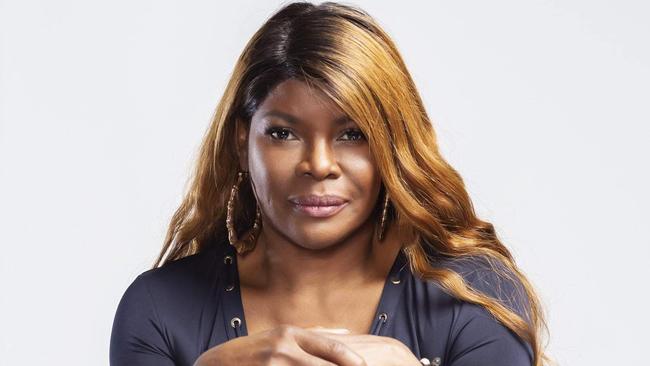
“I don’t know that I would have ever gone on Australian Idol because I’m relatively shy, so to try and be in a competition such as that, wasn’t for me.
“I used to enter talent shows in Boston, but they were never on the level of being plucked out of obscurity and thrown on television around the country, so it would have been a totally different thing.”
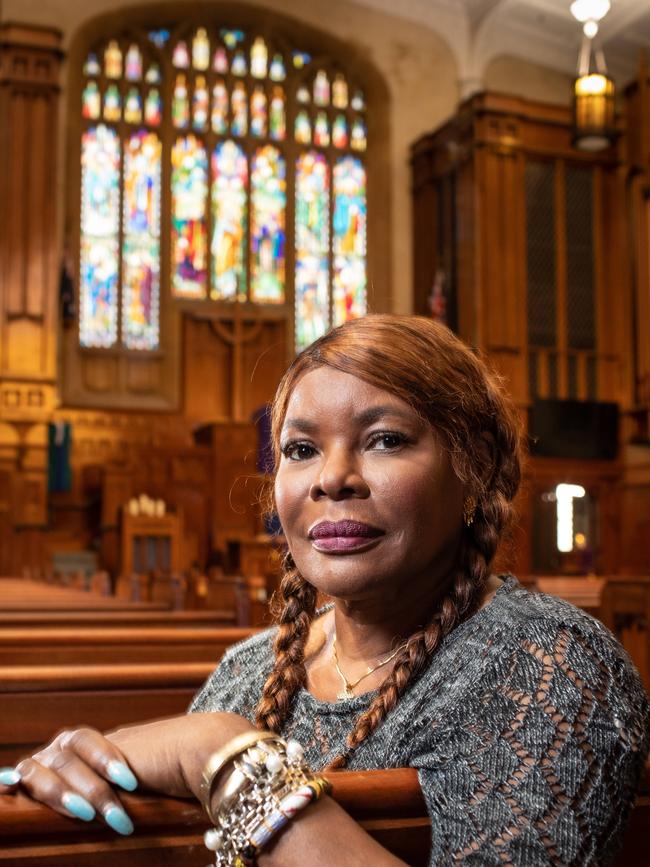
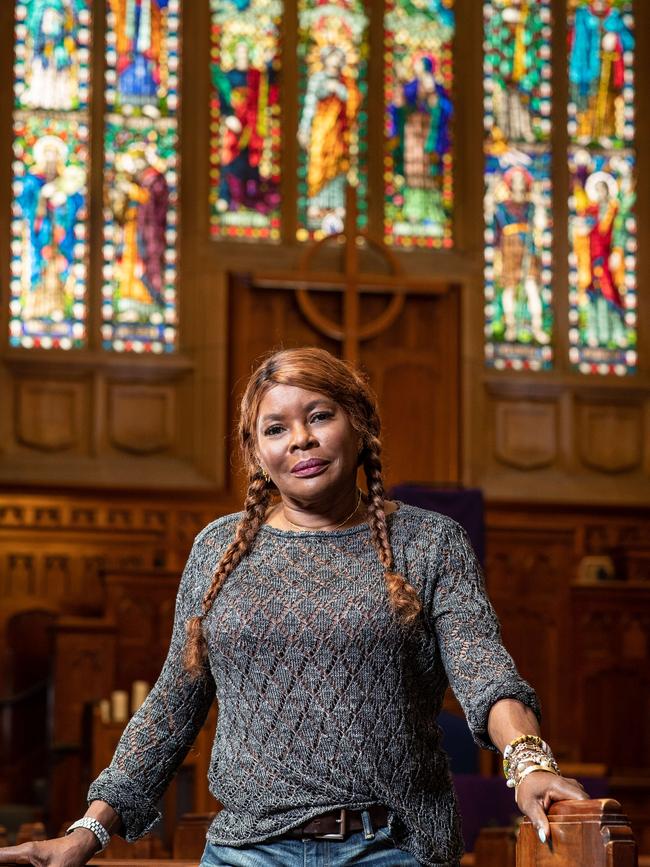
“But you’ve got to try and check out your wares as you go. Nothing ventured, nothing gained.”
Gospel is in Hines’ blood and now, at a time when she says we all need to keep the faith and find joy, her passion for song has brought her back to the altar for a world-first show premiering as part of VIVID Sydney.
Despite being born and raised in the US, Australia has claimed Hines as our own for the past five decades. But paying homage to where she came from, she will host two nights of music her way in The Gospel According To Marcia.
A 12-piece choir will complement her live band at St Stephen’s Uniting Church, and she will share stories of growing up in Boston, where she learnt her craft in the pews of Black American churches.
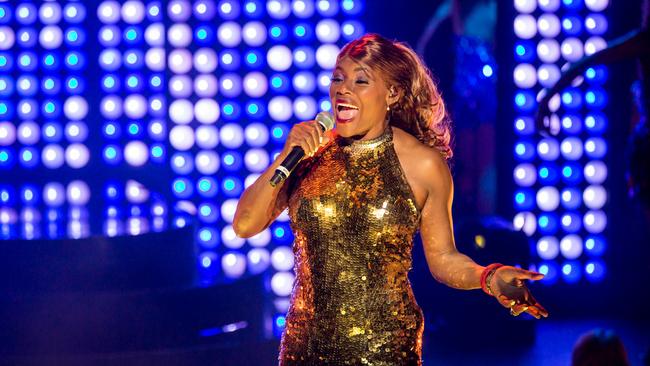
“Most black kids in America are brought up in church, that’s the basis of your social life,” Hines says.
“I went to two churches because my mother was Church of England and my godmother, who I was very close to, was Baptist.
“She was blind, and so I used to take her into the choral box as she was the head of the choir.
“Children were not allowed in the choral box, but I was because I was helping her out and I would just sit there and listen and listen.
“It was a pretty stunning upbringing.”
Forever encouraged by her cherished Aunt Florence, singing soon became Hines’ life.
It prompted her move to Sydney in 1970 as a wide-eyed 16-year-old for the lead role in Hair, plucked from obscurity for her talent by the legendary Australian producer Harry M. Miller.
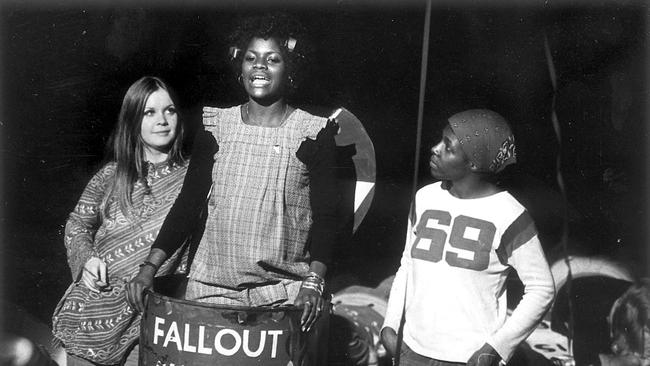
She was performing the night she gave birth to daughter Deni that year, and was back on stage just nine days later.
Four years later, she was the first Black woman anywhere to play Mary Magdalene in Jesus Christ Superstar, and a star was born.
“I have really warm, fuzzy memories (of my childhood),” Hines says.
“It’s so important to know that you’ve been loved in life. That family core is very important, and the encouragement.
“My godmother played the piano beautifully and I’d always go to her house and listen to her sing or practise what she was going to sing on the Sunday.
“She was a big influence in me becoming a musician.
“I was always intrigued by music as a kid. When all of my friends were in the street playing, I’d be listening to something over and over and over trying to work it out, so it was wonderful to have the guidance of my godmother.
“She was a Jamaican lady and we would just talk. I’d always spend New Year’s Eve with her and watch the proceedings that happened at Times Square and my family didn’t drink so she wasn’t a drinker, but she’d sort of give you some eggnog or something and we’d watch and just talk about life.
“You don’t realise when you’re a kid that somebody is preparing you for life.
“Because with a godmother you have conversations you’d never have with your mum, so I was just blessed to have good people around me who have encouraged me for my life.
“So that’s the least I can do for other people.”
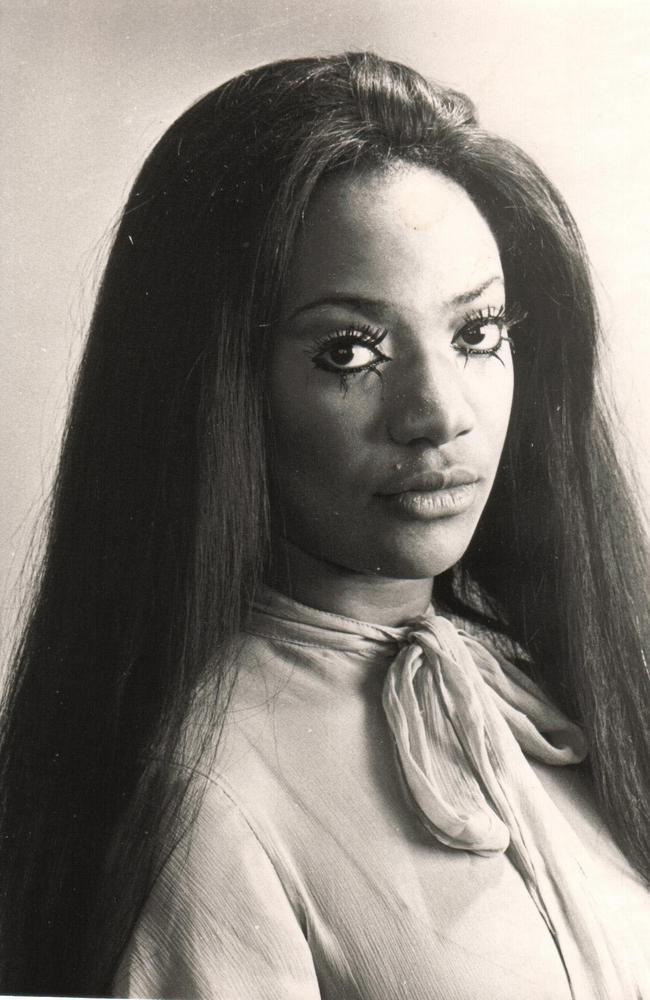
Leaving everything she knew at just 16 was a giant leap of faith but one she’s never regretted for a second, because it led her here.
“I must have been driven, and also, at 16, what are you scared of?” Hines says.
“Life is for the taking.
“I was brought up well by people who gave me good morals and the structures of how to treat people and how important it is to be humble.
“I had all that stuff, so my mother trusted me, which is really cool, you know?
“I mean, I don’t look back on it and go, ‘wow’. I just look back on it and I’m proud that my mother brought me up the way she did. Because Australia was a very different country to America when I first got here.
“But because I came into an incredible show that was the toast of the country, not just the town, everybody in the tribe, the cast, were very kind and nurturing.
“I had people around me who supported me and encouraged me, so once again, when you know you’re loved and being loved, you can just about accomplish anything.”
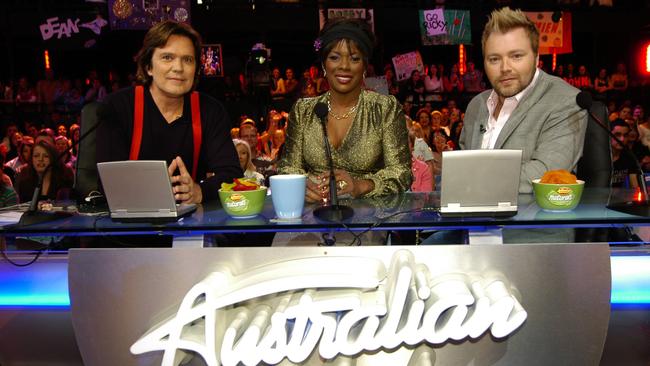
Ir was that nurturing instinct she took with her when she presided over Australian Idol as a judge, discovering, judging and mentoring up-and-coming talents such as Guy Sebastian for seven years from 2003.
“When I was doing Australian Idol, that’s what I remember saying to the kids, ‘Just be yourselves and do the best that you can’,” she says.
“Don’t listen to anybody else. There’s nothing like (that guidance) in the world.
“And I look at younger people and think, ‘OK, so this is my future here’, so you’ve got to encourage and try and guide.
“Don’t be a pain in the butt, but try and guide if they ask for guidance.”
Hines was a teenager when she had her daughter Deni – also a singer and now living in Thailand with husband Daniel Moses – and says she was surprised her daughter followed her into the music industry, because just like her own mother Esme, she was never a “stage mother”.
“When I showed interest in the music industry, my mum just said, ‘OK, well, if that’s what you want to do, that’s fine’,” she remembers fondly.
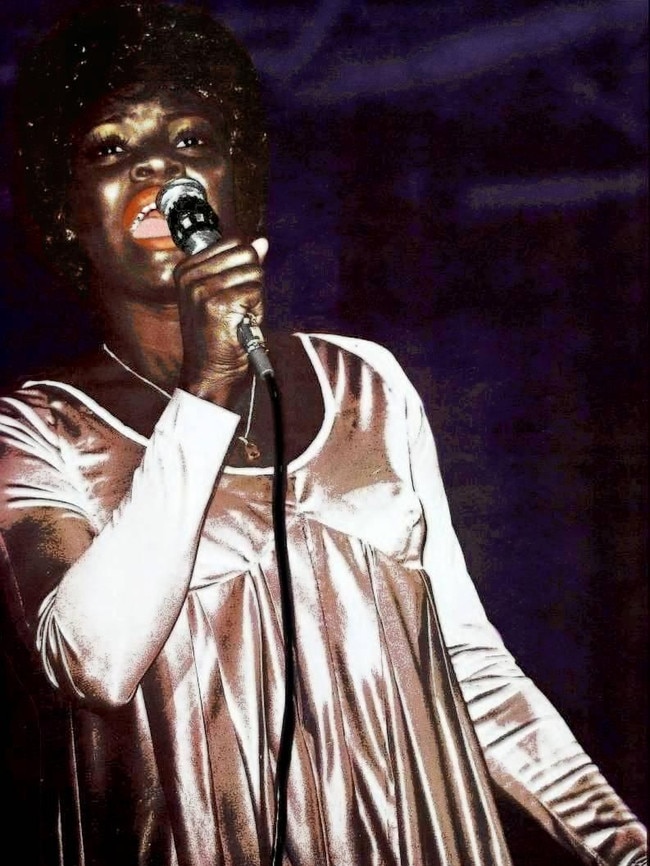
“She never dragged me to auditions or asked me to do anything much. It was just off my own bat that I started to study and listen to things that I liked.
“And I think the same thing would have applied to Den because she would have seen me working really hard on the road and recording, and she would have heard the music that I played at home, and she would have been slightly influenced by that.
“And of course, you become influenced by what you hear but as you grow up, you choose what it is you want and develop your own style and who you are.”
The pandemic has been tough on Hines, but she and her tribe took the time to check in on each other and ensure they stayed connected, especially to Deni, so far away in Thailand.
“All my colleagues who felt the same way, we all checked in on each other and made sure everybody was OK, because when you are a performer, you are used to being able to express yourself,” she says.
“I think performing is kind of like your primal scream, and it’s important to be able to express yourself, and that was taken away.
“But having said that, you have to be happy with the person that you become and that you’re becoming.
“Everybody is like a work in progress, but you should know who you are.
“Look, I’m 68, so I should know who I am by now. If I don’t know who I am now, I will never know,” she laughs.
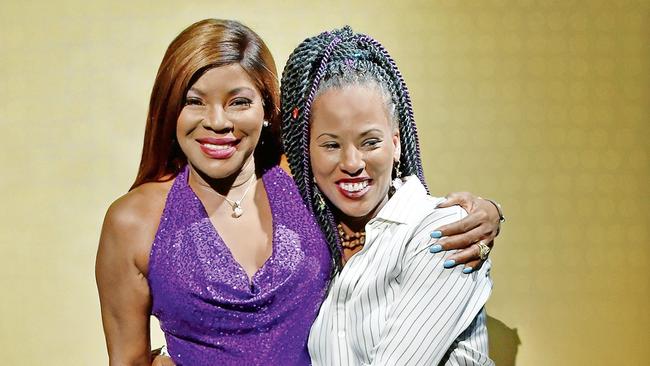
While she spent her lockdown days relaxing, reading, listening to music and tending to “all the things she never had time to do” around her Sydney home, Hines would love to get back to New Zealand’s South Island or the US for a holiday soon.
Although, as she says, one of the upsides of the pandemic has been that it kept her in Australia – the beautiful country she calls home, and has “seen more of than the Leyland Brothers”.
“It’s an amazing country, and I think Australians have realised they don’t have to leave it,” she says.
“We’ve got some of the most incredible (places) you can just go and hang in, or you can just drive around and see incredible scenic routes, so if there has been an upside, that’s it. That Australians are keeping their money in Australia.”
Another upside? The triumphant revival of live music.
A week after The Gospel According to Marcia in Sydney this June, she’s off to perform at the Adelaide Cabaret Festival.
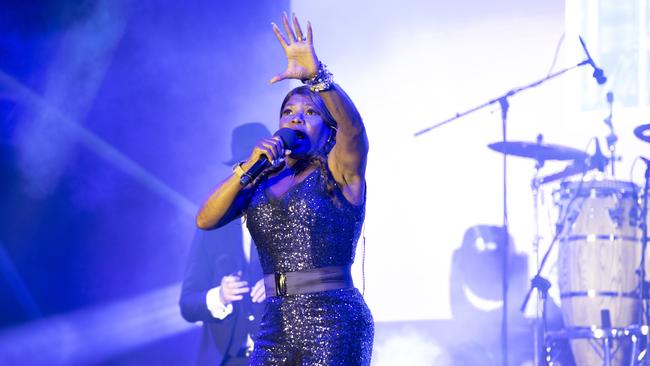
“And the greatest thing, I was speaking to (comedian) Paul McDermott the other day because we did a gig together in Adelaide and I said to him, ‘Isn’t it great we’re still relevant’,” she laughs.
“He cracked up, but it’s true.
“I never entered this thing to do anything except sing. And the lifestyle that I have is because of the music I’ve chosen and because of the love I received from the Australian public.
“And right now, we need some joy.
“We need to realise that we’re all in this thing together, in our own strange ways.
“I think everybody has had a big wake-up call and hopefully this is what we all need.
“We were in the recording studio talking about how special this all feels, to sing these songs I remember hearing my godmother sing.
“Life is timing. And this feels like the right time to sing this kind of stuff.
“I’d be a fool if I didn’t think that I’ve been blessed. I’m quite aware of what I’ve achieved so far and I’m far from finished.” ■





